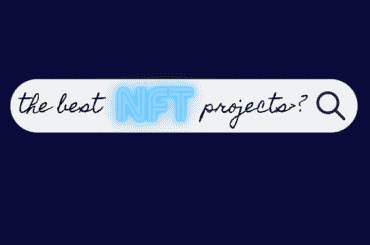The early months of 2022 have brought a slew of headlines featuring eye-popping NFT sales, six-figure deals for virtual land, and the first mentions of a mysterious world called the “Metaverse.” While the media buzz over these stories have led many to invest in digital land and virtual games, less attention has been paid to the companies behind the technology. In this article, we’ll show you the best metaverse stocks to buy, and the companies making the virtual reality revolution possible.
Table of Contents
What is the Metaverse?
Often portrayed in movies and film as as a grim, alternate reality where humans are forced to fight for survival, the metaverse is actually a network of 3D, virtual worlds meant to foster social connection. Simply put, the metaverse will allow users to enter a digital world where they can shop, buy, sell, play, and replicate their own physical experiences by creating an avatar. As Mark Zuckerberg stated in his recent Founder’s Letter, “The defining quality of the metaverse will be a feeling of presence — like you are right there with another person or in another place.”
Web 3.0
While the Metaverse may sound like a confusing concept, the idea is simply the next step in the evolution of the internet. In the current internet business model, also known as Web 2.0, a select number of corporations control closed economies, where online gamers cannot monetize their investments and efforts outside the platform.
In the user-controlled metaverse, which has been dubbed Web 3.0, capital controls are eliminated. This allows users to own their digital assets, like non-fungible tokens (NFTs), and trade them with other players in-game. These assets can also be transferred to other digital experiences, creating an entirely new Internet economy that can be converted to real world currency.
When Will the metaverse Arrive?
At a recent technology conference, Meta Platforms CEO Mark Zuckerberg stated that its Metaverse product “will be mainstream in 5-10 years.”
Although Meta’s platform won’t be ready for some time, there are currently a number of video games that effectively function as metaverse worlds. Popular blockchain based games like Decentraland, Sandbox, and Axie Infinity head the list. Although these games lack the authentic “virtual reality” experience that comes with a VR headset, they are nonetheless self-sufficient worlds where players can use the native digital tokens to buy land and earn rewards that can be exchanged for money.
Investing in metaverse Stocks
For those who want to buy a piece of the metaverse without purchasing in-game digital items, there is always the option to invest in the stock market. Metaverse companies listed on a public market not only have the backing of dozens of financial institutions on Wall Street, but they are also less volatile than the virtual land or in-game tokens that have attracted many current investors.
Keep in mind that the metaverse concept is complex and spans many different industries. Although certain companies overlap with multiple industries, the following list has been divided into chip makers, social platforms, software, computing, and e-commerce to help you better understand where a stock fits in with the broader environment.
Chip Makers
NVIDIA Corporation (NVDA)
Often thought of only as a semiconductor manufacturer, Nvidia has lofty aspirations that extend outside its core industry. Earlier this year, the company announced a quantum leap for its gaming platform, unveiling more than 160 gaming and studio GeForce-based laptop designs. It also announced new generation content and the expansion of both GeForce NOW cloud gaming and the Nvidia Studio ecosystem.
Amidst its swath of product releases, Nvidia also announced the launch of its “Omniverse” platform, which will allow creators to collaborate on and connect 3D worlds and scenes into a shared virtual universe. And considering that the metaverse will require a massive amount of processing power, Nvidia’s graphics and video processing chips used in high-end supercomputers and VR devices will be highly coveted.
Additionally, Nvidia is currently in negotiations for a potential buyout of ARM Holdings from SoftBank Group. ARM is a major player in patents and software that allow chips to be implemented into computer systems. With the buyout, NVDA will be able to build out its end-to-end ecosystem.
Social Platforms
Roblox Corporation (RBLX)
Roblox Corp is another popular investment whose platform is essentially a video game. With over 43.2 million daily active users who play on the site, Roblox has used the pandemic to grow its user base and make money by selling its virtual currency – which players can use to access games, experiences, content, and even virtual clothing for their characters. Many analysts have made the point that Roblox has the foundation of the metaverse within its own platform.
Recently, musicians such as Tai Verdes and Lil Nas X have even hosted virtual concerts on the company’s platform – a signal that virtual events are gaining mainstream appeal.
It’s also helpful to know that management shares the goals of many current investors in RBLX stock. Speaking on the company’s vision for the future, Roblox CEO David Baszucki recently said, “Our whole company is really focused on the innovation to drive and shepherd this vision of what some people call the metaverse – or human co-experience – forward.”
Meta Platforms, Inc. (FB)
Widely viewed as the driving force behind the metaverse, Meta Platforms, Inc. (formerly Facebook) generated widespread media attention over the past few months after Mark Zuckerberg announced that the corporation was switching business models from a Facebook centered social media site to a metaverse product.
Although Meta’s flagship product is in the early days of development and won’t be available until an estimated date of 2030, the company recently launched its first virtual world, Horizon Worlds, on December 9, 2021. Available to access through Oculus’ VR headset, Horizon Worlds allows users to create their own home and interact with friends through parties and virtual gatherings.
Meta also owns Oculus, a company that produces VR headsets, facilitating entry into the metaverse. Additionally, Meta recently received many patents related to technology that uses metaverse users’ biometric data to help generate what they see and perceive in the virtual world.
While only time will tell if Meta’s shift in direction will pay off, the company has committed to investing billions in virtual reality technology, and has largely bet its future on the successful creation of its own metaverse space.
Software
Adobe Inc. (ADBE)
While not usually thought of as a metaverse company, Adobe is a leader in the software solutions space that boasts a number of widely used products including Adobe Creative Cloud, Document Cloud, and Experience Cloud. One product the public is not familiar with is Adobe Aero, a tool used to develop augmented reality experiences by overlaying digital content over a live view of a mobile device’s camera.
Not only is the iOS app free, but it lets designers build AR experiences without coding knowledge. The app instead makes use of Adobe programs, letting users import 3D files from Dimension and 2D layers from Photoshop and Illustrator to create immersive experiences.
Adobe’s Aero tool, as well as its additional investments in 3D technology, led Jefferies tech analyst Brent Thill to state that “Adobe is the best software play for the metaverse — its creative tools will enable the next generation of the internet.”
Unity Software Inc. (U)
A giant in the 3D software space, Unity owns one of the two main 3D video game engines, a tool that allows designers to customize how video game players move and interact within their games. The company’s technology is so popular that it estimates that about half of all 3D content today is made with its software.
According to the firm’s own data, 71% of the top 1,000 mobile games were created using Unity’s platform and more than 50% of all games across PC, mobile and console devices were created using Unity’s code. The prevalence, popularity, and necessity of Unity’s platform mean that a future version of the metaverse will likely have to incorporate some of the company’s software to function.
And the company isn’t sitting back and admiring its success. In November, Unity acquired parts of Weta Digital, the visual effects studio that helped create the “The Lord of the Rings” movies. The $1.62 billion dollar deal will make advanced tools such as facial capture and manipulation, anatomical modeling, advance simulation, and deformation of objects in movement available to creators around the world.
Autodesk, Inc. (ADSK)
Founded over 40 years ago in California, Autodesk rose to prominence for its revolutionary AutoCAD software, which allows engineers, designers, and architects to virtually design and create a host of building projects in both 2D and 3D. Today, the company is well-known for its Revit modeling program, which is used to create virtual models of structures.
Although Autodesk’s architectural programs are lucrative, it is the company’s suite of virtual and augmented reality products that make the stock so appealing. The firm now offers a number of products designed to implement 3D animation, construct virtual buildings, and transform Revit models into virtual reality settings.
While many analysts believe Autodesk could be a prime candidate for metaverse construction in the future, the stock’s recent activity saw it drop to a price per share of $251, down from its recent high of $321 in July – making for an excellent buying opportunity.
Microsoft Corporation (MSFT)
One of the most well-known companies on the list, Microsoft’s product line spans a number of key industries. When it comes to virtual reality, however, Microsoft seems to have found a niche in the “professional metaverse.” The company plans to launch its own version of the Metaverse in the first half of 2022. Its product, called Microsoft Mesh for Teams, allows workers to meet with each other in a virtual setting through their smartphone or laptop. This includes enabling users to create AI avatars for video meetings, collaborating in virtual workrooms and creating immersive environments for participants.
Microsoft’s stated goal is to integrate the “internet of things,” with augmented reality technology to expand its professional software market dominance. Its Microsoft Dynamics 365 Connected Spaces platform, for example, will allow companies to recreate and visit their work factory floors or retail spaces during virtual meetings to boost collaboration and interact with their product spaces.
Additionally, Microsoft expanded its reach into the “social metaverse” when it announced an agreement to acquire video game giant Activision Blizzard Inc. (ATVI) for $69 billion. Not only will the deal expand the company’s footrpint in the video game industry, but it would also give Microsoft access to 400 million monthly active gamers – many of whom spend time and money in virtual spaces.
Computing
Fastly, Inc. (FSLY)
While there are many unknown factors regarding how a future metaverse will be constructed, one thing is certain – any virtual world will need some of the strongest edge computing power available. Theoretically, the metaverse will span the globe, connecting users in real time as they perform complex tasks such as flying a virtual plane or attending a concert.
This is where Fastly comes in. FSLY operates an edge computing infrastructure-as-a-service (IaaS) platform that brings servers and other equipment to the source of data creation. The company’s edge cloud platform includes features such as their delivery network, image optimization, video and streaming, cloud security, and load balancing services. Additionally, Fastly’s cloud security services include denial-of-service attack protection, bot mitigation, and a web application firewall.
Fastly’s platform can move 145 terabytes worth of data per second across 28 countries, and the sheer scope and power of the company’s offering makes it a prime candidate to supply computing solutions for future virtual worlds.
Cyber Security
Cloudflare, Inc. (NET)
An American web infrastructure and security company, Cloudfare rose to prominence in 2014 when the company successfully defended what was at the time the largest ever recorded DDoS cyber attack against an undisclosed customer.
Since that time, Cloudfare has attracted one of the largest and diverse client lists for any cyber security company, which includes foreign governments, journalists, celebrities, and even certain terrorist organizations. Every day, Cloudfare blocks 76 billion daily threats, and considering the amount of personal data that will be available on future metaverse platforms, Cloudfare’s technology suite will most likely play an important role in protecting users.
metaverse Indexes
Considering that there are hundreds of companies involved in metaverse platforms, some investors may find it easier to purchase an ETF, a fund that holds positions in a number of different stocks associated with a given sector. Two popular names are the Roundhill Ball Metaverse Theme ETF and the ProShares Metaverse ETF.
Launched in June 2021, the Roundhill Ball Index holds positions in over 50 metaverse related stocks. The fund has struggled recently amid the tech selloff in 2022 and was trading at $13.32 as of February 10, 2021. Roundhill Ball has its largest positions in Nvidia, Microsoft, Meta, and Roblox.
ProShares’ Metaverse ETF was formed in December of 2021. The fund tracks the performance of the Solactive Metaverse Theme Index, which includes companies exposed to the metaverse industry. Proshares’ top holdings include Apple, Meta., and Nvidia.
Other related ETFs include the Fount Metaverse ETF, which is trading at $21.62, and the Subversive Metaverse ETF, which is trading at $26.
Overall, there are now 282 listed funds concentrated on the metaverse, and with the rapid devolpment of virtual technology, that number is only expected to increase.hec tvenmalradyRoblox’s





